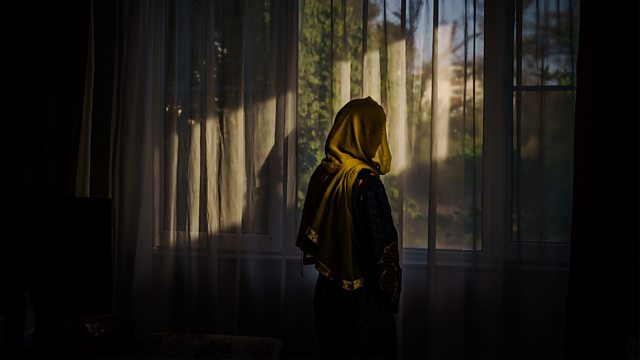The missing women of Afghanistan
Afghan women’s voices and freedoms are vanishing from public life; can elections ever change Lebanon?; tracing Cambodia’s looted artworks; Bavaria's Passion Play back on stage
Rebecca Kesby introduces dispatches from journalists and correspondents in Afghanistan, Lebanon, Cambodia and Germany.
When the Taliban took control of Afghanistan in August last year their movement made much of its promises on human rights. Women could still work, and girls still attend education, they claimed. Rules about female dress and behaviour wouldn’t be as strict as they had been when the Taliban ruled in the 1990s. But since the Taliban takeover, girls’ secondary education has nearly disappeared, women aren’t permitted to travel without male guardians and are now strongly advised to stay at home – and cover their bodies and faces if they step outside. In a prison in Herat, Ramita Navai recently found a number of women who’d been arrested and held without charge, supposedly for “crimes of immorality”. For some, being locked up was only the start of their troubles – and being released put no end to them.
Lebanon’s recent history reads like a list of overlapping crises: a mass protest movement convulsing the streets, endless power and water cuts, a drastic economic contraction – and then the huge blast which wrecked the port of Beirut in 2020. Do its recent elections provide any reasons for optimism? Leila Molana Allen has spoken to politicians and voters who insist change can still happen – and that the nation can still be saved.
These days, the international art world is reconsidering its attitude to the precious objects of the past. Collectors and museums in Western countries are under increasing pressure to be sure their collections are legitimate – and not full of works stolen or looted from the original sites. The countries and peoples where some art works originated are increasingly demanding them back. Cambodia, too, wants to reclaim some of the cultural treasures which
were taken from its temples during the chaotic time of the Khmer Rouge regime and its aftermath. Celia Hatton explores what it might mean for Cambodians to have some of its sacred statues back in place.
Every ten years, for nearly four centuries, the people of the small Bavarian village of Oberammergau have kept to a historic vow – to mount a stage production recounting the story of the life and crucifixion of Jesus Christ. After being held up for two years by the Covid pandemic, the new “cycle” which was due to be acted out in 2020 is now ready for its public. Adrian Bridge talked to the players about what the drama means to them – and how it’s become a landmark in their lives.
Producer: Polly Hope
Production Co-ordinator: Gemma Ashman
(Image: Afghan woman by a window, September 2021. Credit: Marcus Yam/Los Angeles Times)
Last on
More episodes
Previous
Next
Broadcasts
- Sat 21 May 2022 15:06GMT����ý World Service News Internet
- Sun 22 May 2022 03:06GMT����ý World Service
- Sun 22 May 2022 08:06GMT����ý World Service
- Sun 22 May 2022 23:06GMT����ý World Service

